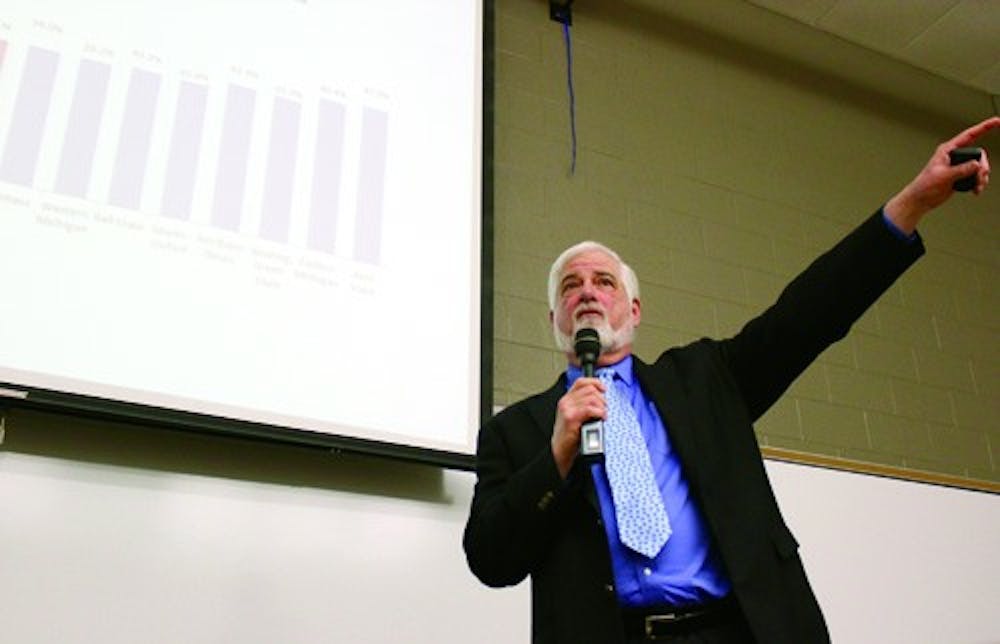A-Senate: May commencement to graduate 2,462 bachelor's degrees; 500 students from 2010 'boom' graduating in four years

Although nearly 2,500 students are graduating in May, only 20 percent of those students are getting out of Central Michigan University in four years.
University officials have estimated that 2,658 students are still attending CMU from the class of 2010, according to retention data collected by the Office of Institutional Research.
"Our four-year graduation rate is somewhere around 20 percent," said Provost Michael Gealt after Tuesday's Academic Senate meeting. "It's one of the things we're working on improving. Our six-year rate is about 53 to 55 percent. It's about where other universities are nationally."
That means only 532 of the 2,462 students graduating with a bachelor's degree are from the 2010 enrollment boom.
In October, Central Michigan Life reported that four-year graduation rates were around 20 percent in 2013. According to a 2012 university report, persistence rates for first-time freshman students over the past decade have remained at 75.4 percent or above. Of the most recent three-year averages, 76.9 percent persisted to their second year, 68 percent persisted to their third year and 64.6 percent persisted to their fourth year.
The report also detailed graduation times for an average freshman class, with only 20.6 percent graduating within four years or less and 47.6 percent graduating in five years or less.
“We aspire to help each person discover their passion,” said Jason Bentley, director of the Office of Student Success, regarding retention in 2013. “Retention rates are one gauge – like the mileage on your car – and they help tell us if we are making good progress in helping students achieve their goals.”
Efforts delving into keeping students at CMU have been met with their fair share of obstacles. Yet university officials hope new strategies, such as offering more in-house financial aid to students, can help keep them here until graduation.
Other strategies are being formulated as well, Gealt said. Particularly, the university is looking to streamline how many credits students can take each semester to get them out in the desired four years. Currently, students are considered full-time at 12 credits a semester."They cannot finish in four years," Gealt said. "It's recommended students take 15 credits a semester to graduate in four years."
Administrators are looking into adding this recommendation as part of the initial advising process, as well as changing the standards for how many credits some students take in a year for some academic scholarships.
"You'd have to pass 30 credits in one year," Gealt said.
Graduation and retention rates are determined by the integrated post-secondary education data system and are reported to the federal government. Gealt said those figures take first time college students, as well as full-time students, and puts them into a cohort for the government to analyze.
"When you talk and look at graduation rates, (post-secondary) data only considers (first time) and full-time students," he said. "Sometimes students aren't full-time, so they don't get counted. Some people have suggested alternatives (for calculating retention rates). We're sort of constrained."
Gealt said the most important thing is to get students out of CMU with a degree in a timely manner. Some students in the College of Education and Human Services have degrees that require more than the standard 124 credits needed to graduate. Gealt said the university needs to figure out how to streamline getting those students' credits in order.
"To have students get out of here on time is important," he said. "For CEHS for example, that can be difficult"



